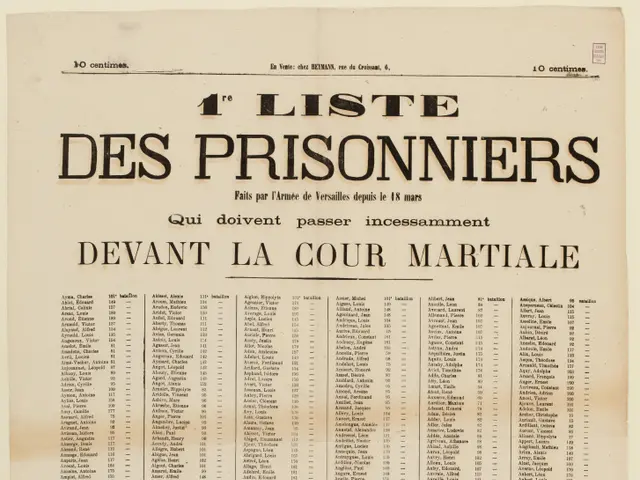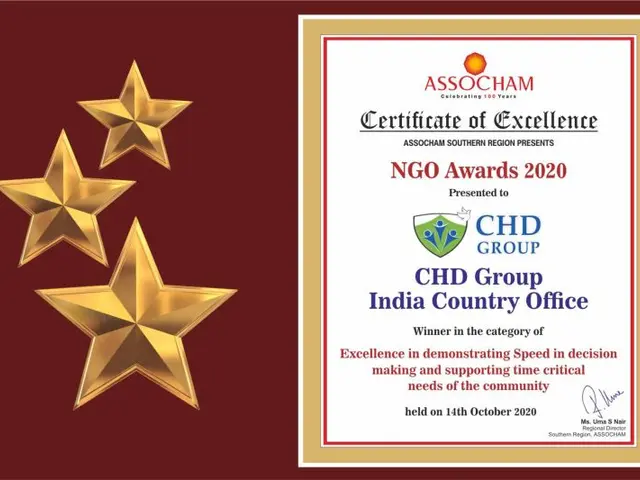Unregulated hemp expansion poses a significant challenge to established cannabis companies.
Grabbing the Cannabis Crown: The Competition Between Compliant Cannabis Companies and Unregulated Hemp-Derived Products
Competing against unregulated hemp-derived cannabis products feels like a familiar struggle for cannabis companies, as they grapple with less regulatory scrutiny due to a technicality or a slight product difference. Here's the gist of it:
- Hemp (containing less than 0.3% delta-9 THC) is federally legal under the 2018 Farm Bill, popularly known as the Agriculture Improvement Act. This major piece of U.S. legislation removed hemp from the Controlled Substances Act, allowing for its cultivation, production, and interstate transport. Regulatory oversight was given to the USDA, with states and tribes permitted to develop their own hemp programs.
- Regular cannabis (derived from cannabis sativa or cannabis indica) is colloquially known as marijuana and is a Schedule I narcotic, federally illegal despite many states legalizing it. These state-run programs subject businesses to tight regulatory pressure, butthey cannot benefit from multi-state operations at scale or qualify for as many tax deductions due to cannabis' federal scheduling.
Since the legality change for hemp-derived cannabis, the market for hemp-derived cannabinoids like CBD, delta-8 THC, and delta-9 THC products (now dubbed intoxicating hemp) has boomed. Yet, these products are controversial and operate in a legal gray area, as they're indiscernible from marijuana-based cannabis with its stricter regulations. This has led to dangerous incidents based on lack of oversight, creating unfair competition for businesses that remain compliant with laws and a bit of a public relations issue for the cannabis industry.
Lighting Up the Accounting World
Despite the business boom for intoxicating hemp, Mike Goral, a tax professional and CPA who leads the cannabis practice at Armanino, tells his clients that this is a temporary phenomena. "Products like [hemp-based] delta-9 have become a real challenge," Goral explains. "Cannabis companies went through all the red tape to get licenses, pay taxes, and follow regulations, while hemp-based companies are producing delta-9 THC products from hemp under the Farm Bill with no oversight."
Multi-state cannabis operators are feeling the heat, as they either join the competition by offering hemp-based cannabis products or tirelessly fight against these producers. Goral predicts that long-term, hemp-based products will face tighter regulations. "No one in this business should be able to bypass cannabis laws with a hemp workaround," he concludes.
Missouri's Take on Intoxicating Hemp
Brenda Bader, owner of Gold Leaf Accounting in Missouri, notes that local markets are tackling the intoxicating hemp challenge head-on. Though she doesn't advocate for a complete ban on these products, she highlights the lack of legal oversight in the hemp-derived Delta-9 market as leading to dangerous incidents, customer frustration, and an image crisis for cannabis in traditional areas.
Attorneys have shared stories of how unregulated these products are during panels. " One attorney went into a convenience store and scanned the QR code on a Delta-9 product linked to a completely different flavor, and it was dated over 20 years ago on a product that clearly isn't 20 years old," Bader explains.
Local licensed cannabis operators aren't looking to eliminate the product line completely, but aim to require regulation across the board in the interest of ensuring fair competition. As the industry navigates strict packaging laws, similar to those in pharmaceuticals, Bader encourages maintaining regulatory standards.
Legal Concerns
Jeffrey Hoffman, who operates one of the largest cannabis-centric legal practices in New York, shares that hemp-derived cannabis products face a significant legal challenge in several states. Texas, with the biggest market for the product "by far," is taking steps to ban hemp-derived cannabis products. Senate Bill 3, currently high on the Lieutenant Governor of Texas' priority list, will make all intoxicating hemp products illegal.
In other states like California, Nebraska, Florida, and South Dakota, regulations are proposed on hemp-derived cannabis products, while Tennessee and Arkansas have implemented legislation prohibiting or regulating these products. Mississippi and Ohio have taken steps to put stricter controls on these unregulated products.
Regardless of a state's stance on cannabis' legality, the cannabis-legal states plan to regulate these intoxicating hemp products because they don't want them competing with their regulated cannabis markets. Meanwhile, states without legal cannabis are moving to ban hemp-derived cannabis products, fearing that they become a backdoor for consuming cannabis illegally.
Read More in Regulation & Compliance• Can Trump oust Powell? Court cases may shift precedent: Trial Balance• The cost-benefit of rescheduling cannabis• Stressed about tariffs? Here's how to financially model their impact• Probationary IRS workers will be back to work before Tax Day: Trial Balance• China readies 34% tariff on US imports starting April 10• March earnings update: How finance leaders are navigating tariffs• Though concern is up, most websites aren't doing anything about tariffs - Duke-Fed survey• Tax execs brace for disruption ahead of expiring TCJA rules• Want to see more stories in Regulation & Compliance? Read More ➔
- The boom in the market for hemp-derived cannabinoids like CBD, delta-8 THC, and delta-9 THC products has caused a public relations issue for the cannabis industry due to their controversial status and operation in a legal gray area.
- Mike Goral, a tax professional and CPA, warns his clients that the current popularity of products like hemp-based delta-9 THC is temporary, as he predicts that long-term, hemp-based products will face tighter regulations.
- Brenda Bader, owner of Gold Leaf Accounting in Missouri, notes that a lack of legal oversight in the hemp-derived delta-9 market in local markets has led to dangerous incidents, customer frustration, and an image crisis for cannabis in traditional areas.
- Jeffrey Hoffman, who operates one of the largest cannabis-centric legal practices in New York, shares that hemp-derived cannabis products face a significant legal challenge in several states, with Texas taking steps to ban these products.
- In the finance industry, the cost-benefit of rescheduling cannabis and the impact of tariffs are hot topics, with finance leaders navigating these disruptions and preparing for changing regulations and rules.








